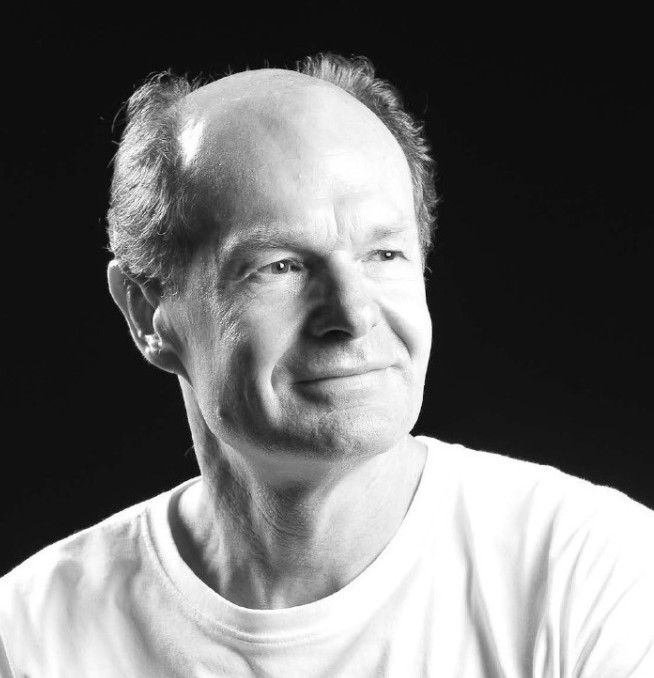
Dr Paul Van Driessche MBE (PhD Environmental Policy 2018) is the British Honorary Consul to the Republic of the Maldives and a Visiting Researcher at the Centre for Environmental Policy (CEP), Imperial College London.
Dr Van Driessche is currently applying his environmental research knowledge towards establishing an agricultural research centre in the Maldives. The centre will focus on climate mitigation and adaptation strategies to protect terrestrial and marine biodiversity.
In the Queen's Birthday Honours 2021, Dr Van Driessche was made an MBE for services to British Nationals in the Maldives.
What did you learn during your time at Imperial, in class or out?
Time management is one of the significant takeaways from my time at Imperial. A PhD is a rigorous academic undertaking requiring a balance between work, study, and life in general. Learning to allocate time for these various activities during the PhD process stood me in good stead for life management post-PhD.
Why did you choose Imperial for your PhD?
The Centre for Environmental Policy (CEP) was an enthusiastic proponent of my PhD research seeing the merits of its qualitative approach. The investigation followed a phenomenological line of enquiry within a multisite case study where agricultural stakeholders revealed their lived experiences. In working with the CEP, I received valuable input from its outstanding scholars and found it to be a friendly and supportive environment in which to study.
Further support for my research came from Bloomberg Philanthropies, who generously contributed towards its completion. As ever, a special thanks to the good people at Bloomberg.
Who did you find inspiring at Imperial and why?
Professor Sir Gordon Conway and Zen Makuch. Both felt my research could make a practical contribution to agricultural policy and programming in the Maldives and other Small Island Developing States. Inspirational thanks also go to Alison Ahearn, who first introduced me to the wonders of Imperial!
Do you have any fond memories of your time here?
CEP is a friendly place to be. I would drop by to see colleagues, sometimes without an appointment, and often be greeted with coffee or an impromptu lunch.
What is your favourite place at Imperial and why?
There was something usually going on around Prince's Gardens, particularly at lunchtime. It is also a midway point between CEP and the Imperial College Dental Surgery!
Tell us a bit about the work you're doing now.
I am currently working on establishing an agricultural research centre in the Maldives, which will look at agricultural pollution, context-driven approaches to interventions, and enhanced food security - particularly in the wake of the COVID-19 challenge.
Areas of focus will include agricultural pollutants and their effect on marine and terrestrial biodiversity, terrestrial carbon and soil management, and sustainable business models for climate-smart agriculture. Emphasis is placed on context-driven approaches so that the interventions are sustainable post-implementation phase. Hopefully, this will contribute to building agricultural capacity where productive output and marketing connectivity are enhanced.
I am attached to the British High Commission in Sri Lanka and serve as the British Honorary Consul to the Republic of the Maldives. This role covers various activities, including championing mental health awareness and working with institutional consular partners.
In addition to being a Visiting Researcher at the CEP, my further association with Imperial is through the Zebra Housing Association, where I serve as Vice-Chair.
How has what you learnt at Imperial helped you in your career so far?
Imperial has provided me with a theoretical understanding of climate change issues, which has blended with my past work experience and ongoing research interests.
Were you involved in any extra-curricular activities during your time here?
I discussed environmental concerns impacting the Maldives with MSc students on the Environmental Policy and Management course – particularly coastal zone management, water salinity, and waste management.
What have been your career highlights and lowlights?
A highlight would be working with farmers towards climate-smart agriculture. The farmer buy-in for this approach is evident, and we await the evaluation of these initiatives.
A lowlight would be being on the wrong end of bureaucratic contortions!
What does a typical day look like for you now?
A typical day consists of writing, meetings, and the inevitable Zoom calls. Visits to island communities are always a highlight but have been sadly lacking due to COVID-19. Thankfully, this situation is easing and I look forward to revisiting farmers soon.
What are your plans for the future?
To keep going!
What would be your advice for current students?
Keep going! Balance your study and life activities, and don't forget to enjoy the ride.
What makes you proud to be an Imperial alumnus?
Imperial is a first-class academic institution with significant research capacity. Combined with its excellent industry links, these qualities make Imperial the 'best fit' educational institution for many students.
In the case of alumni in the Maldives, we held our first Imperial College gathering in 2018. I recall we had 10-15 attendees and a very jolly evening swapping Imperial stories with the brilliant Maldivian alumni. The British High Commission, Colombo, attended the event and noted its pride in showcasing such an outstanding UK academic institution.
What one word or phrase would you use to describe Imperial alumni?
Engaging.
Do you have a favourite quote or saying?
In God, we trust. The rest of you bring data!
Why Imperial?
"Imperial is a first-class academic institution with significant research capacity. Combined with its excellent industry links, these qualities make Imperial the 'best fit' educational institution for many students."